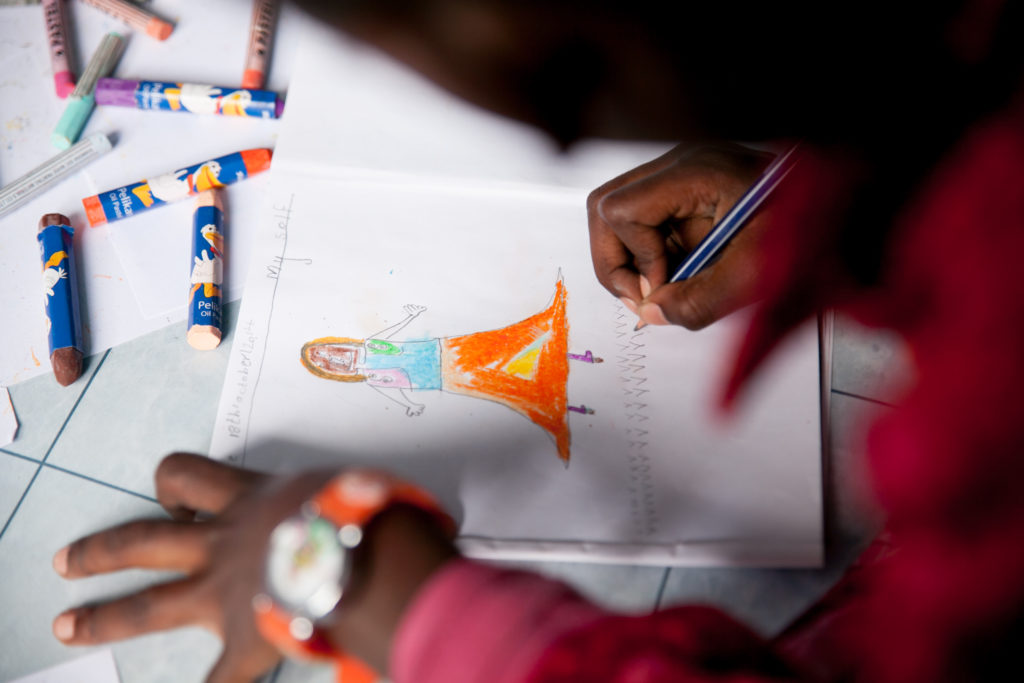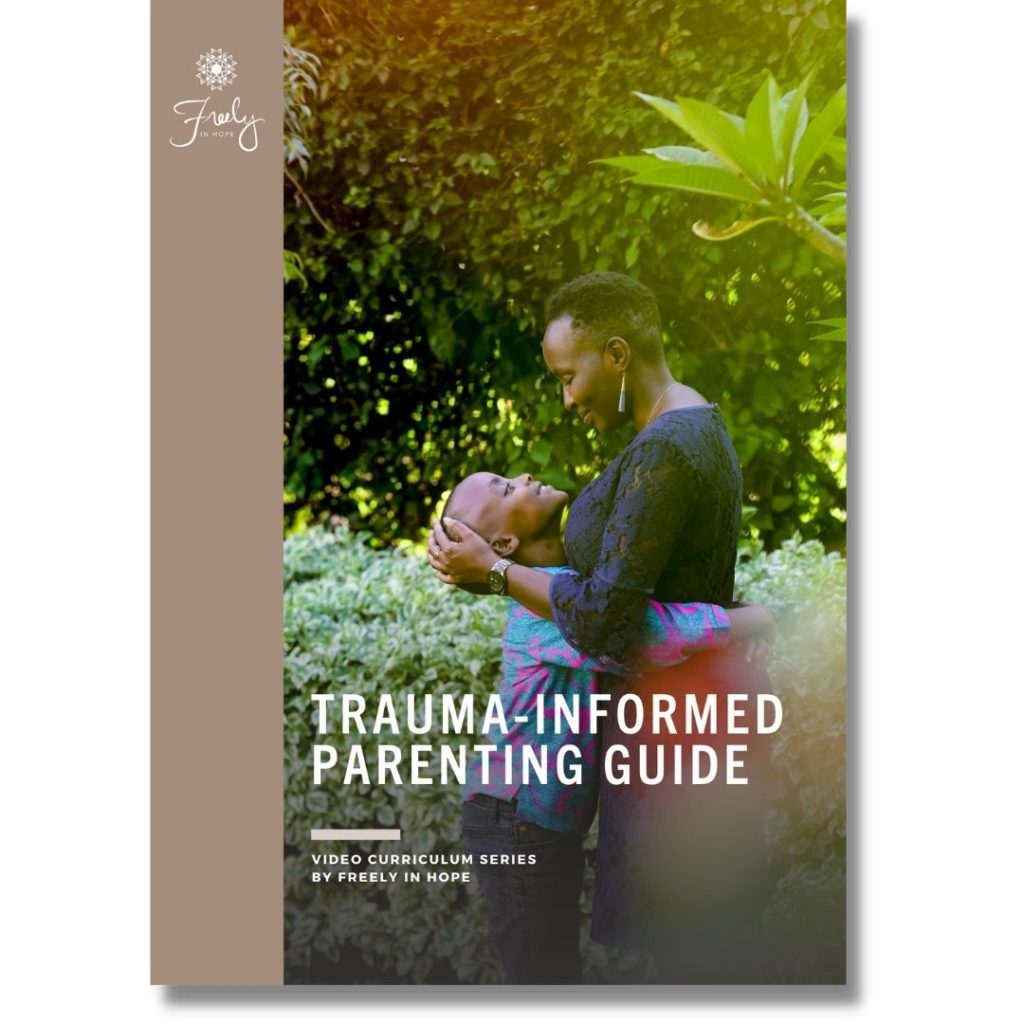This resource is for parents and caregivers of children who have experienced sexual abuse. If you are not sure whether your child has experienced sexual abuse, click here for helpful ways to approach the subject with your child.
Many parents and caregivers are unaware of both the immediate and lifelong damage that a violated child will suffer, but this ignorance has cost us the future of our children. To stop this cycle, we must remedy ignorance with intentional conversations. By learning how to best care for your child and growing a strong support network, you will be able to move towards healing with your child. This intention and standard must begin with you in the home. If you are reading this right now, you are taking a huge step in the right direction.
There is no instruction manual for dealing with trauma, but there are ways to ensure that your child feels safe and heard. If you have found that your child has experienced sexual abuse, here are some healthy steps and insights on beginning the healing journey:
1. It is not your fault.
Sexual abuse is not only traumatic for the child but for their families as well. Parents and caregivers often struggle with extreme guilt after finding that their child has been violated. There is no perfect reaction to knowing your child has been abused. Abuse is a complex situation that will cause complex emotions and thoughts. Whatever you are feeling as a parent is totally valid. You are not a failure, and it is not your fault that your child has been abused. In order to heal, you must extend grace and forgiveness to yourself every day.

2. Seek helpful information and support.
There are many myths and misconceptions surrounding child sexual abuse, and not all parents strive to gain the information and support they need. If you are questioning your ability to parent a victim of sexual abuse, it is completely normal. This makes it important to surround yourself with educational resources and professionals who can provide the appropriate help. You can also seek community with parents who have experienced something similar. These support groups allow you to express your complex emotions and receive encouragement through your self-doubt. Another helpful practice is to participate in therapy. Therapy is extremely important for yourself, your child, and anyone else in your home affected by the trauma. Through therapy, you will learn how to be present for your child and how to facilitate difficult conversations.
3. Develop a routine with your child.
When a child experiences abuse, their life is disrupted and their sense of security is lost. An abused child no longer knows what to expect, but creating a daily routine with them will give them confidence and reduce high anxiety levels. When you include them in creating this routine you are giving them autonomy over their being. You are returning their confidence and showing them that their needs and desires are important to you. Let them know that their routine can be altered depending on their needs and welcome their feedback. Keep encouraging their progress and reassuring them of your unconditional love and support. Create a new normal!

4. Enforce trauma-informed discipline.
Children healing from trauma may struggle with expressing their emotions appropriately. This emotional turmoil may manifest in behavioral issues, relational issues, promiscuity, or withdrawal. Understand that the negative behavior you are dealing with is a response to extreme trauma. As they are trying to reconcile the abuse, physical discipline may confuse them. This makes it a necessity for you to reestablish disciplinary boundaries with trauma-informed discipline. Trauma-informed discipline is characterized by flexibility in your methods and catering to your child’s unique needs. You may find it helpful to seek your child’s permission before initiating physical contact and asking what types of contact they prefer. If they are not comfortable with hugs, try a high five or even positive verbal reinforcement. Try to avoid physical punishment because the child may retraumatize, and as a result, your message will be lost. You can strengthen trauma-informed discipline with constant positive reinforcement, encouraging your child to address their feelings with you while still being clear with the consequences of their behavior. Being consistent and communicative in these practices will build trust with your child and provide opportunities for improvement.
5. Practice self-care.
As a parent or caregiver, you are devoting your full time and energy to supporting your child through their healing. But even as you care for your child, you still have healing taking place within yourself as well. Finding healing is an exhausting process and may cause compassion fatigue. It is important to practice caring for yourself as it will allow you to rejuvenate, grow, and ultimately sustain your caregiving. If you need encouragement and insight in this area, visit our resource on Caring For Yourself As You Care For Others.
Remember to extend compassion to yourself. You are embarking on a journey that is difficult and painful, but one that will prove to be fulfilling and beautiful.
Take it one day at a time!

access the guide!
The Trauma-Informed Parenting Guide provides the basics of trauma-informed care to empower parents and caregivers to have age-appropriate conversations with their children around sexuality, sexual abuse, and trauma healing.
Donate to our campaign to receive access to the
Trauma-Informed Parenting Guide!

Joan Ngaruyia’s great passion is helping those who have been through traumatic experiences. She tirelessly supports their journey toward healing—ultimately helping them rediscover themselves as strong dignified individuals. As a counselor with Freely in Hope, she believes in empowering survivors through various methods of therapy, including trauma-focused cognitive behavioral therapy, to help raise the next generation of survivor-leaders who will champion the end of violence. Joan graduated Magna Cum Laude from Daystar University in Kenya with a Bachelor’s Degree in Psychology. For over 7 years, she has had the privilege of working with different institutions to prevent violence against women. Outside of work, she loves reading a good book and taking nature drives.




